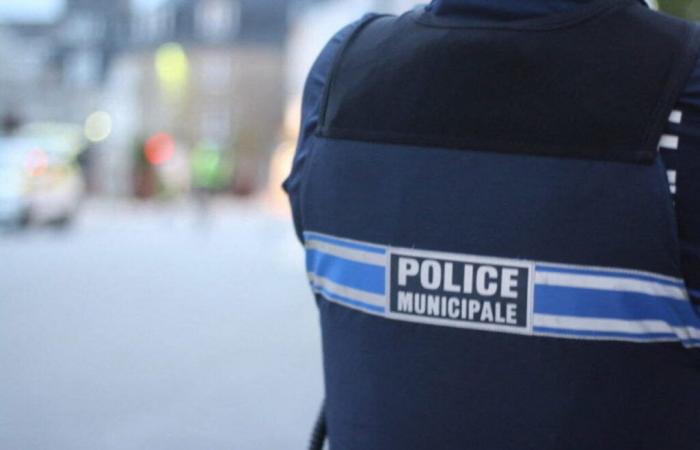Par
Julia Gualtieri
Published on
Jan 14, 2025 at 7:16 p.m.
Illegal dumping of garbage, noise at night, neighborhood conflicts… These small crimes on public roads often go unpunished. But things should change in several towns in the Marne et Gondoire conurbation.
Nine municipalities in “short circuit”
Bussy-Saint-Martin, Collégien, Dampmart, Ferrières-en-Brie, Gouvernes, Lagny-sur-Marne, Montévrain, Pomponne and Thorigny-sur-Marneall these municipalities have just signed an agreement with the Meaux Public Prosecutor's Office. Objective: to provide a criminal response to these everyday incivilities which tarnish the lives of residents and which “represent the majority of mayors’ concerns”, explains the agglomeration.
Until then, these offenses were, in fact, not, or barely, dealt with.
The floor is clogged with a bunch of small complaints. With the short circuit, we put in place an accelerated, simplified procedure so that there is a criminal response.
On the proposal of prosecutor Jean-Baptiste Bladier, several municipalities therefore agreed to sign this agreement valid for one year.
A response rate of 80%
This system has already been tested in two municipalities in the north of the department: Meaux et La Ferté-sous-Jouarresince May 1, 2023. Enough to have a little perspective on its relevance. Verdict? Hubert Ciron, delegate of the prosecutor, who is responsible for proposing criminal responses, announces:
We have a response rate and a presentation rate for invitations which is around 80-85%.
A percentage much higher than expected. “Today, with the towns of Marne and Gondoire, we are moving away from experimentation. It is rather the beginning of a generalization,” he summarizes.
How does it work?
But what, in concrete terms, makes this short circuit work better? Until now, the prosecutor's delegate explains to us, the procedure was much longer. In fact, the municipal police drew up a report which they then sent to the police or gendarmerie so that they could carry out their investigation.
Only then did the report go to the prosecution. “It took… a while,” summarizes the prosecutor’s delegate. Enough in any case for the offense to be very often closed. Knowing that these types of facts are… after a year.
-A response in 21 days
From now on, with the short circuit, the criminal response arrives in 21 days. Miraculous? The recipe is actually quite simple. The short circuit convention provides for a single intervention report for municipal police officers, a report which is then transmitted electronically to the national police officers or gendarmes.
“They simply carry out a few checks: is the person wanted, if there is no ongoing investigation concerning them… it’s much faster,” explains Hubert Ciron. In a period of five daysthe report thus arrives on the desk of a delegate of the prosecutor. This process thus gets rid of “the procedural formalism of the investigations to be carried out”, indicates the prosecution.
For whom and for what crimes?
If these delays are possible, it is mainly because the cases are quite limited: the short circuit is only applicable for authors who are identified et without criminal record and for facts not requiring heavy and complex investigations. Furthermore, it cannot apply only to adults and excludes legal entities.
As for the offenses concerned, they may be minor offenses such as cleanliness violations (leave dog droppings or garbage outside authorized locations), traffic offenses (driving without a license or without insurance) but also drug use, damage, abandonment of a vehicle… “These are profiles of people and offenses that call for a response that punishes of course, but with an educational dimension,” continues the prosecutor’s delegate.
Alternative sentences for educational purposes
Indeed, the criminal responses that he proposes, and which are then validated by the prosecution, are alternative measures. “This can be a probationary criminal warning or a conditional classification which requires the offender to follow, where applicable, a citizenship course, a course on drug consumption, or road safety awareness. There may also be compensation or citizen contributions. In this case, the fine is in the form of a donation to a victim assistance association,” explains Hubert Ciron.
To be notified of his sanction, the author of the offense is summoned to court of Meaux. “People accept it willingly,” notes the prosecutor’s delegate with satisfaction. And if they do not accept it, the offense returns to normal, with the risk of having a more significant sanction at the end. Likewise if the police investigation reveals anything.
Do not leave files unanswered
In summary, if the flooring does not seem no less clogged with the short circuit, the work undertaken makes it possible in all cases to truly provide a criminal response. The advantage is to free up part of the time of police officers and gendarmes so that they can concentrate their activity on crimes and misdemeanors. As for the court, despite a lack of staff, it is “capable of absorbing” this work.
Another advantage: the feeling for municipal police officers that their work is really having an effect.
Every city has its problems. In Meaux, we instead had reports of drug use. At La Ferté, it was mainly about cleanliness. From the feedback we have been able to get, in this town, there has been a real improvement.
See you in a year to take stock of the system on the Marne and Gondoire side.
Follow all the news from your favorite cities and media by subscribing to Mon Actu.





